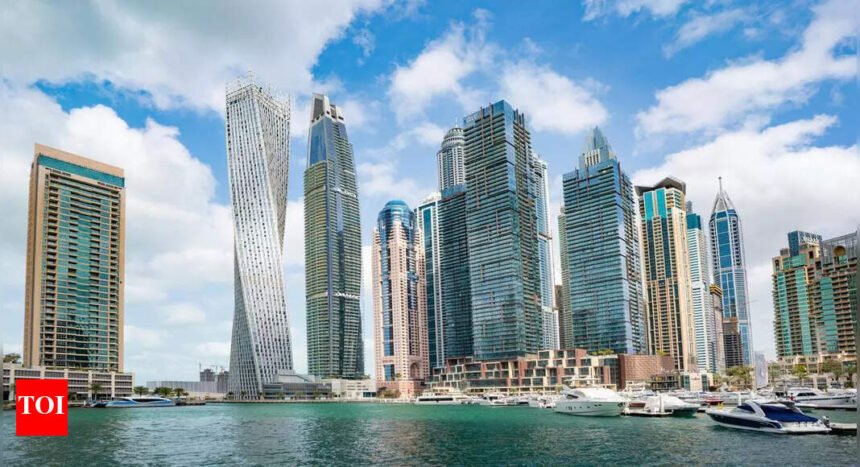TL;DR: The UAE does not have a national legal minimum wage yet, but recommended salary thresholds apply in practice. Sectors such as domestic work, skilled labour, and public service follow unofficial wage benchmarks.Mandatory salary payment through WPS is now enforced across more categories, including domestic workers. The government is expected to tighten wage rules in response to rising living costs and labour market pressures.
A System Without a National Floor
As of 2025, the UAE has not enacted a formal nationwide minimum wage for all private-sector workers. The current labor framework, outlined in Federal Decree-Law No. 33 of 2021, provides the Ministry of Human Resources and Emiratisation (MoHRE) with the legal authority to establish a national wage floor but no binding law has yet been implemented. Instead, salaries are regulated through employment contracts and visa-related requirements. Employers must pay wages via the Wage Protection System (WPS); a government-monitored payroll platform. Failure to comply can result in suspension of new work permits, fines, and company blacklisting. Recent reforms have expanded WPS coverage to include domestic and semi-professional workers like private teachers, caregivers, nannies, and farm technicians. This shift reflects a broader move toward labor standardization and income protection across job categories.
What Workers Typically Earn: A Benchmark View
Although no legally enforced floor exists, salary benchmarks function as de facto minimums in many professions. These reflect industry standards, cost of living, and immigration thresholds.
Domestic Workers:
Housemaids, nannies, and drivers employed in homes now fall under stricter payment rules, with most salaries ranging from AED 1,200 to AED 1,800/month (₹28,044–₹42,066), depending on experience and nationality. WPS compliance is mandatory for these roles, ensuring regular wage transfers and legal accountability for employers.
Construction and Skilled Trades:
Labourers and tradesmen form the backbone of the UAE’s infrastructure sector. While base pay for unskilled labourers often starts at AED 1,200–1,500/month (₹28,044–₹35,055), skilled tradespeople such as electricians, plumbers, and masons can earn between AED 2,000 and AED 4,500/month(₹46,740–₹105,165). Many of these roles are protected under labour laws that mandate written contracts, paid leave, and access to dispute resolution.
Retail and Service Staff:
Workers in retail outlets, supermarkets, cafes, and delivery platforms typically earn AED 2,500 to AED 4,000/month (₹58,425–₹93,480). In these sectors, wage variability is influenced by location (Dubai salaries often exceed those in Sharjah or Ajman), nationality, and employer size.
Office and Administrative Roles:
Clerical staff, receptionists, and data entry assistants generally receive AED 3,000 to AED 5,000/month (₹70,110–₹116,850), with larger companies or public sector institutions offering higher packages. For visa eligibility especially family sponsorship—employees must earn a minimum of AED 4,000/month (₹93,480), or AED 3,000 (₹70,110) plus housing.
University Graduates and Skilled Technicians:
For professionals with technical or university qualifications, MoHRE guidelines recommend salaries of at least AED 5,000 to AED 12,000/month (₹116,850–₹280,440), depending on the nature of the role. Engineers, IT professionals, and finance specialists typically command salaries within or well above this range.
Visa Rules and Wage Enforcement
Though no national wage law exists, immigration requirements act as an indirect filter. For example:
- Family visa sponsorship: The UAE mandates a minimum salary of AED 4,000 (or AED 3,000 plus accommodation) for an expatriate to sponsor dependents.
-
Golden Visa applicants in employment-based categories must earn at least AED 30,000/month (₹701,100), particularly in scientific or technical fields. - Employment contracts must specify wages in UAE dirhams and be registered with MoHRE to be legally recognised.
The Wage Protection System ensures salaries are paid into local bank accounts within 10 days of the due date. Any delay beyond 15 days triggers automatic alerts, and repeated violations can lead to bans on new hiring.
Rising Costs and Reform Pressures
Over the past few years, Dubai and Abu Dhabi have seen substantial increases in rent, school fees, and healthcare costs. As a result, there is growing pressure on authorities to formalise wage protections and align pay standards with inflation. While some companies voluntarily adjust salaries to retain talent, many low-income workers remain vulnerable to economic shocks. Calls for an indexed minimum wage system adjusted annually to match living costs, growing louder, particularly from labour advocates, unions in labour-sending countries, and international observers.
The Road Ahead: Formal Minimum Wage in Sight?
Although the UAE has avoided a one-size-fits-all national wage model, change is on the horizon:
- Free zones may begin enforcing internal wage floors for certain industries to standardise competition.
- Sector-specific minimum wages could emerge in healthcare, hospitality, and logistics where migrant workers dominate and wage disparity is high.
- Public-private harmonisation efforts may also push for parity, as
Emirati workers often earn significantly more than expatriate counterparts in similar roles.
MoHRE has already hinted at “exploring mechanisms” to address income disparities. If implemented, a flexible minimum wage varying by sector or emirate which could strike a balance between labour protection and economic competitiveness.
Verdict
While there is no official minimum wage in the UAE today, the country is moving toward greater wage transparency, stronger payment enforcement, and benchmark-based income protection. Domestic workers, skilled labourers, and administrative staff now operate under more structured payment conditions—backed by technology and labour law. As the UAE positions itself as a global employment hub, expectations for formal wage regulation will continue to rise. A future where salaries are legally anchored to fair benchmarks seems not only possible but likely.






